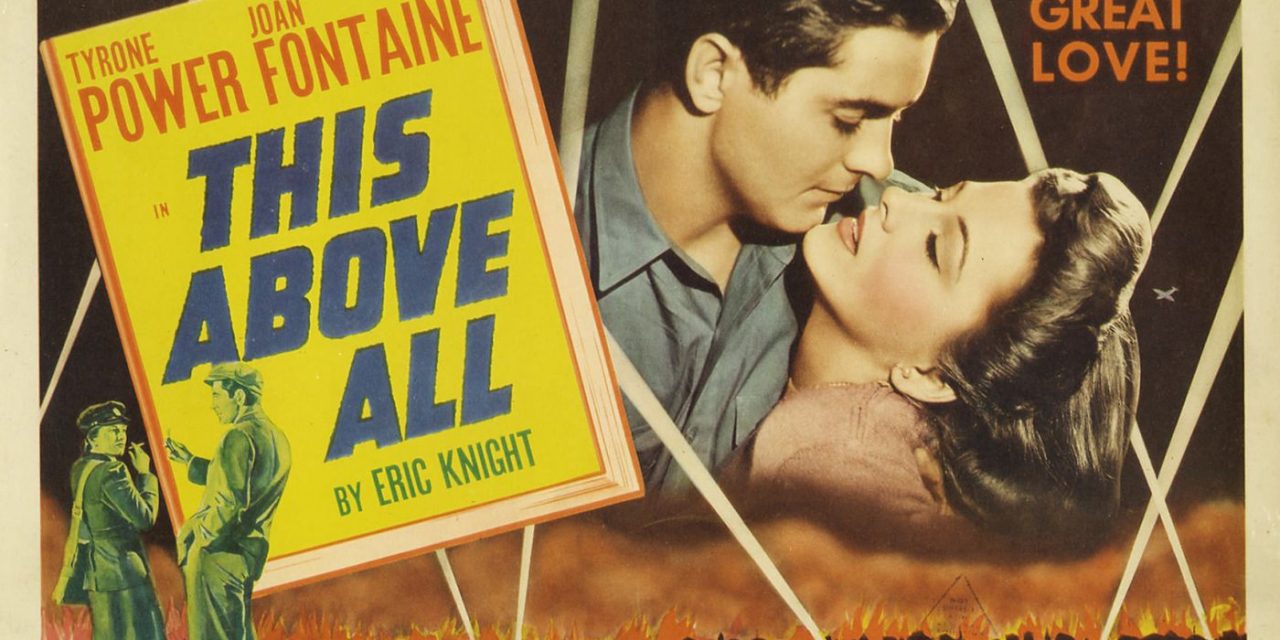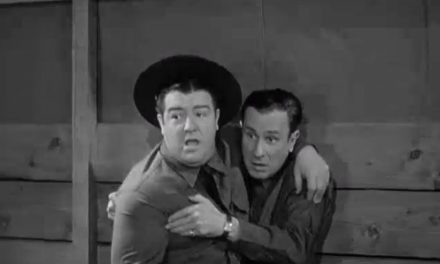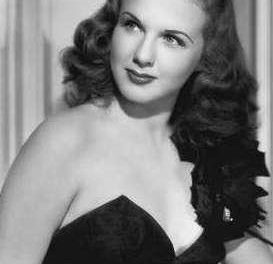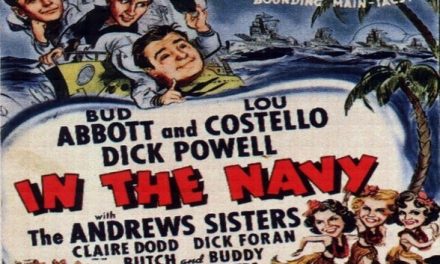Do not misjudge This Above All, starring Tyrone Power and Joan Fontaine, as simply a romance full of the complications of wartime. In reality, this film is a cleverly disguised philosophical piece. The characters find themselves in England, one focused on contributing to the war effort while the other struggles with his conscience on whether or not to fight. As the saying goes, opposites attract.
Prudence Cathaway (Joan Fontaine) is a well-bred English girl from who shocks her aristocratic relatives when she joins the WAAFs (Women’s Auxiliary Air Force). While training in camp, she is set up with a man on a blind date. The man, Clive Gibbs (Tyrone Power), is standoffish at first, but once they begin to talk, it is clear they have a connection. They begin to see each other intermittently and eventually go on holiday together.
It is during this trip that Cathaway begins to notice Gibbs’s attitude toward the war. He doesn’t like when she’s dressed in her army uniform; he becomes annoyed whenever the war is mentioned and always asks to change the subject. She even hears him having nightmares about the war. It is only when Gibbs’s army friend tracks him down that the truth comes out. Gibbs had taken leave from the army and never gone back. If he doesn’t return in the next day, he will be labeled as deserter.
At this point the film becomes more than a romance in a desperate time. The struggle to find something worth fighting for overcomes Gibbs. He joined the army the day the war began, saying he was “willing to die if there was any sense or reason to it.” But he didn’t find any. The leaders were “stupid, complacent, and out-of-date” and weren’t fighting for the same England he was. He believed the upper class were fighting this war to keep their way of life intact. He didn’t want to give his life for something that he hated and despised. Gibbs was overrun with these feelings. They haunted his sleep and made him bitter.
Cathaway saw the war differently. She was of high station but couldn’t sit idly by while England was in jeopardy. She tried to understand Gibbs but made no concessions. “There are bigger things to fight for than your conscience,” she said. Although Gibbs initially refuses to change his outlook on the war, he witnesses Cathaway’s passion and it lays the groundwork for a change of heart. Cathaway reminds him that reason is not always what should be followed. In times of great evil, following the heart must be enough. She speaks to who he is and explains that those who run England do not make it up. “England made you, and every part of you,” Cathaway says. “Even if you don’t understand everything, you would understand that.”
Still warring with his inner demons, Gibbs goes AWOL instead of returning to the army. After weeks of running and hiding he meets a priest who gives him shelter. It is in this moment that Gibbs realizes the need for faith. Faith in his nation and in its people. Reason was telling him not to be mixed up in such a grueling, warped war, but faith pushed him to fight for his country, to believe in a cause bigger than himself. “Your mind and your soul are locked in a struggle – your body the battleground,” the priest says.
Gibbs realizes his mistakes and decides to turn himself in. “A man is not entitled to free thought unless he’s ready to pay the price of admitting it,” Gibbs says.
This film pushes a strong message to not let doubts overcome the cause of the greater good. It shows that fear is a side effect of war but that it leads to bravery, and that love can lend faith to those who lack it.





